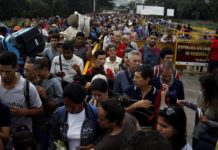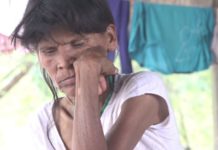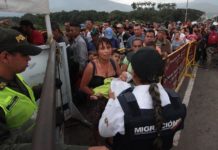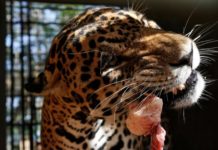The Wayúu Indigenous Community in Colombia and Venezuela Is Dying of Thirst
By: Lully
After many years of exclusion and poverty, the Wayúu community in Colombia and Venezuela has been fighting for their voices to be heard.
The people of this community, located on the desert peninsula of La Guajira at the northern tip of Colombia and the territory shared with Venezuela, is faced with a combination of hunger, malnutrition, and thirst. The main reason? The river that runs through the region was dammed and its water privatized for surface coal mining and industrial scale agriculture.
Children are especially vulnerable to this deadly situation. The community filed a complaint with the Inter-American Commission on Human Rights in an effort to force the Colombian government to free up the flow of water. Their petition shines a light once again on a subject that has appeared in the news on and off since mid-2014. Defenders of the community have made many calls for humanitarian assistance programs, grants and projects to help these indigenous people, but few have become reality.
The Wayúu are the largest indigenous group of Venezuela and Colombia. They represent about 11% of the population of the Venezuelan Zulia state and close to 45% of the department of La Guajira.
Writing for Canarias-Semanal.org website, Juan Andrés Pérez Rodríguez argued that mainstream media has not paid enough attention to the urgent issues of this community:
The post ends with the trailer of a documentary produced by Colombian journalist Gonzalo Guillén, entitled The River That They Stole. The film, which the indigenous community presented as legal evidence in that complaint, paints a disturbing piccture of the situation in the region using testimonies from both victims and perpetrators.
Some media outlets have recently taken up the issue, such as El Tiempo, which published a text written by María del Pilar Camargo explaining the grave situation faced by the children living in La Guajira. The columnist highlighted something even more serious: not all children are recorded; which means that the figures may be higher:
In alternative online newspaper Las 2 Orillas, Diana López Zuleta explained the community’s complaint in further detail:
On Twitter, users have lent their support to a #SOSLaGuajira campaign started by Colombia Digna, (@colodigna). UNICEF also started a campaign, #DeseoQueAyuda (I want to help) in order to raise funds for the cause.
Source: globalvoices.org










